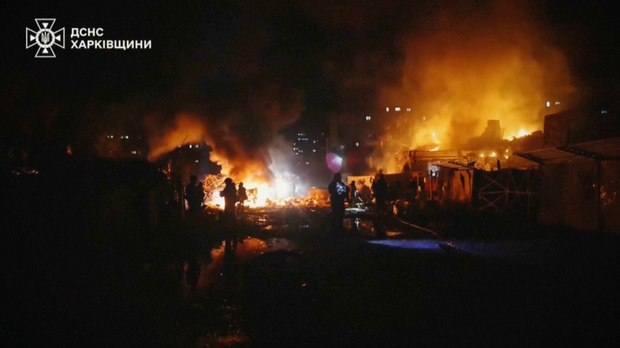Ukrainian President Volodymyr Zelensky said Monday that proposed legal recognition of Russian sovereignty over captured territory in his country's east remains the “main issue” in the negotiations as President Trump pushes for an agreement that would end Moscow's nearly four-year regime. war with Ukraine.
Ukrainian and American officials met over the weekend in Switzerland to discuss 28 point proposal released last week by the White House. They discussed the possibility Zelensky's visit to the United States this week as part of Trump's attempt to secure an agreement by Thanksgiving was reported by CBS News correspondent Margaret Brennan, citing multiple American and Ukrainian officials familiar with the discussions.
Mr. Trump has called the Thanksgiving deadline flexible, and he told reporters on Saturday that the plan presented last week was “not my last” proposal.
www.president.gov.ua
Secretary of State Marco Rubio, who was in Geneva for talks over the weekend, said that “very, very significant” progress had been made with the Ukrainian and European delegations but that “there is still some work to be done, and that's what our teams are going to be doing right now.”
Speaking in the Swedish parliament on Monday, Zelensky made clear that one of the key points of disagreement over the US proposal is a call for Ukraine and the international community to formally recognize some of the territories occupied by force by Russian troops as no longer Ukrainian.
“Putin wants legal recognition of what he stole in order to violate the principle of territorial integrity and sovereignty,” Zelensky said. “This is the main problem. You all understand what this means.”
Finnish President Alexander Stubb said there were still “serious issues to be resolved” regarding the US peace proposal, although he also welcomed progress made in high-stakes talks in Geneva.
Rubio struck a more optimistic tone in describing the weekend talks, saying Sunday that the session in Genevel was “probably the most productive day we've had on this issue” since President Trump returned to office for his second term in January.
State Service of Ukraine for Emergency Situations
Rubio stressed there was still work to be done and said he didn't want to “declare victory or finality.”
The top US diplomat was pressed by reporters but did not offer any clarification on what issues were the main sticking points in the peace talks. He called the proposal a “living, breathing document” and said he believed the remaining issues “are not insurmountable.”
A White House statement Sunday evening said U.S. and Ukrainian officials had “developed an updated and improved peace framework” following discussions, but the Russian government said Monday that the changes had not been shared and that it reserved the right to make judgments.
Putin said Friday that the U.S. proposal could provide the basis for a negotiated solution to an issue his government refuses to recognize as war, but he warned that if Ukraine abandoned the plan, Russian troops would continue their offensive, seizing even more territory.
“We are, of course, closely following media reports that have been coming out of Geneva over the past few days,” Kremlin spokesman Dmitry Peskov said on Monday, “but so far we have not received anything official.”
“We read a statement that as a result of discussions in Geneva, some amendments were made to the text that we saw earlier. We will wait. It appears that the dialogue is continuing,” he said, adding that there are no plans for a meeting this week between Russian and US officials on the topic, but Moscow remains open to dialogue.
The 28-point plan, which US officials said last week had Trump's support, has raised alarm among America's European allies as it is perceived as being too favorable to Russia.
Ukraine's ambassador to the United States, Olga Stefanishyna, said Sunday on CBS News' “Face the Nation with Margaret Brennan” that her country did not agree to all the terms of the draft plan that was leaked to the media last week.
“This plan is not about justice and the truth of this war and aggression,” Stefanishyna said. “This is about ending the war and ending hostilities.”








